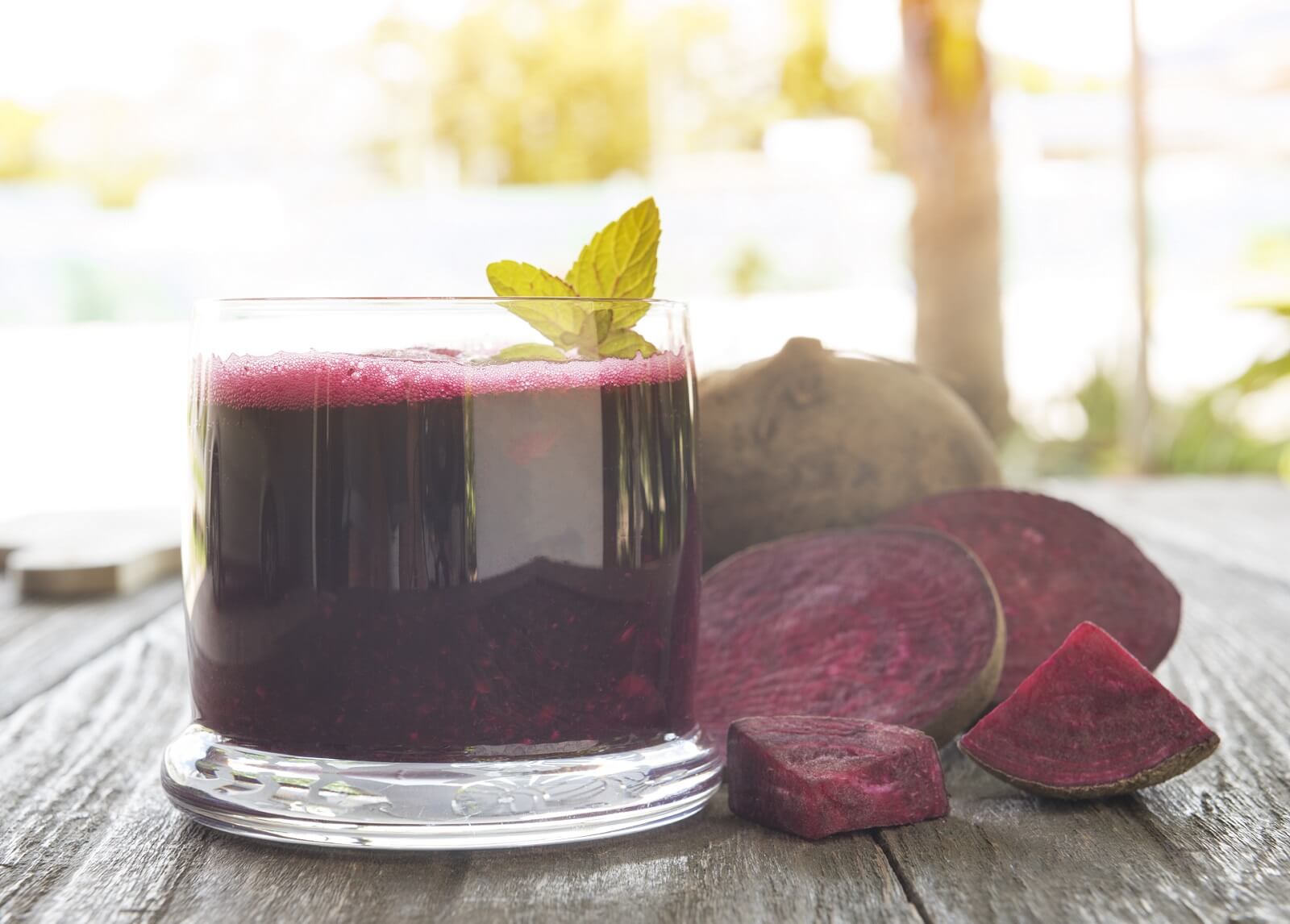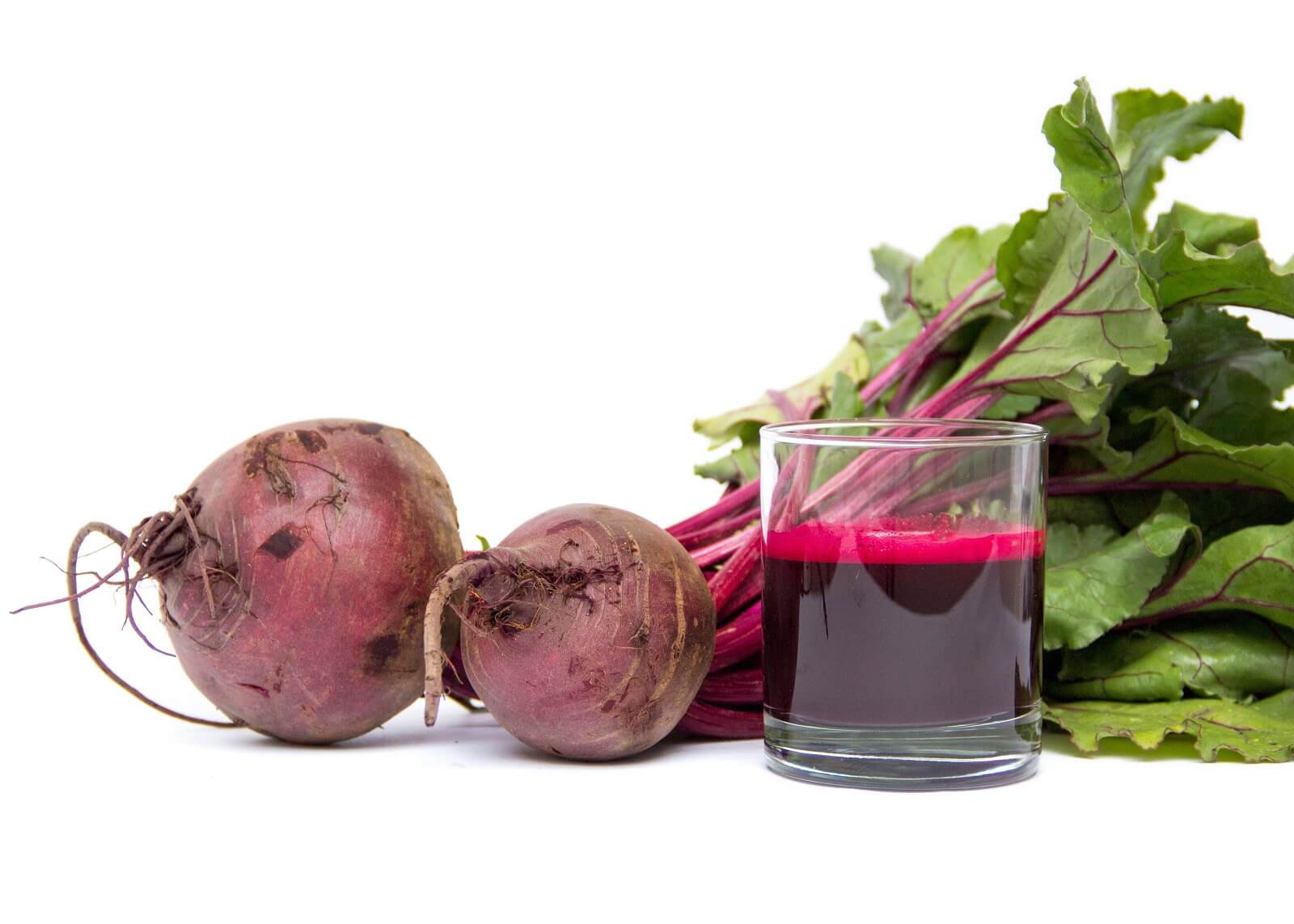Beetroot, also known as (Beta vulgaris), is native to the Mediterranean. People have been eating beetroot leaves before written history. The root of the plant was commonly used for medicinal purposes until Roman times. Ancient Romans used beetroot medicinally as an aphrodisiac.
A serving of beetroot juice can boost energy and lower blood pressure. Consuming beetroot whole or beetroot juice long-term can help lower arthritic pain, fight cancer, aid in weight loss, and provide many other health benefits.
Not convinced? Then read further…
Fights Inflammation
Inflammation is a necessary and important function that protects the body from foreign invaders (fungal, viral, and bacterial). When the body’s systems are in a continual state of inflammatory response, the body becomes susceptible to diseases.
Chronic inflammation can destroy the balance in the body.
Beets contain anti-inflammatory compounds called betaine [1] These compounds inhibit cyclooxygenase (COX) enzyme activity. The body uses cycloxygenase enzymes (COX-2) to trigger the inflammation response.
The average person’s diet is high in inflammatory properties because of the high consumption of processed foods, fats, high sugar/sodium content, and low nutrients.
Lowering the immune system’s inflammatory triggers can reduce the high levels of inflammation within the body and help the body combat the following health disorders:
- Heart disease
- Arthritis
- Bronchitis
- Chronic pain
- Diabetes
- High blood pressure
- Premature signs of aging (wrinkles)
- Vulnerability to bacterial, fungal, and viral infections
- Acid reflux
- Cancer
- Skin conditions (psoriasis and acne)
- Osteoporosis
- Candidiasis
- Urinary tract infections
- Neurodegenerative diseases like (Alzheimer’s and Parkinson’s)
Consumption of beetroot and beetroot juice is an excellent way to reduce the continued harmful levels of prolonged inflammation.
Lowers Blood Sugars
Beetroot juice may even be helpful to diabetics. Although beets s high in sugar, they can help regulate blood sugar levels and beetroot fiber also reduces glucose in the blood.
When beetroot or beetroot juice is consumed, the sugar is released gradually into the body which inhibits sudden glucose spikes.
Beetroot juice provides the best benefits to diabetics when it’s consumed in the morning because it slowly converts into glucose and delivers a steady flow of energy throughout the day.
Beetroot juice is rich in betalain [2] and neobetanin [3], [4]. Both nutrients help lower glucose levels, increase insulin sensitivity, and prevent oxidative stress-induced changes in diabetics.
Supports Heart Health and Lowers Blood Pressure
 Drinking a cup of beetroot juice each day could drastically aid in lowering blood pressure in people living with high blood pressure. [5]
Drinking a cup of beetroot juice each day could drastically aid in lowering blood pressure in people living with high blood pressure. [5]
For those of you who are not familiar with how serious this condition is… High blood pressure causes the heart muscle to become thick.
This causes the heart to pump harder and increases the force of the blood flowing through the blood vessels which damages the arteries, causing them to become inflexible.
As the heart muscle thickens and the arteries become inflexible, the already high blood pressure increases even more, eventually resulting in the following health issues:
- Shortness of breath
- Swollen legs
- Inability to exercise
- Fatigue
- Heart Attack
- Stroke
High blood pressure is common among diabetics, specifically those who suffer from type 2 diabetes.
In a recent study published in the Journal of Hypertension, researchers found that consuming a cup of beet juice daily caused significant drops in blood pressure among people with high blood pressure levels [6]. A diet including nitrates from beet juice can provide the following benefits:
- Lower blood pressure
- Improved exercise ability and duration
- A boost in oxygen delivery to the heart
- Enhanced general health of blood vessels
The nitrates in beetroot and beetroot juice allow the blood vessels to widen, thus improving blood flow [7]. Regular consumption of nitrate-rich vegetables like beets have positive effects in promoting good heart health in multiple ways (8).
Improves Digestion
The high fiber content in beetroot helps to prevent constipation and promote regularity. Beetroot is also loaded with vitamin B-9 or folate. Folate plays a role in new cell growth and tissue repair, this includes repair of the tissues in your digestive tract.
A diet rich in folate lowers the risk of colon cancer. Beetroot fiber definitely promotes a healthy digestive tract.
Supports Eye Health
Although beetroot is rich in antioxidants, the largest reserves are in the beetroot greens. Beetroot greens are a source of lutein and zeaxanthin; they contain more lutein and zeaxanthin than the beetroot itself.
These two phytonutrients help protect the eyes from conditions like macular degeneration and cataracts.
Detoxifies the Blood
Beetroot helps to cleanse and detoxify the blood of toxins, heavy metals, and waste because of compounds called glutathiones. Glutathiones play a crucial role in liver detoxification and within the other digestive organs.
The betalains in beets help to form glutathione which neutralizes toxins and makes them water-soluble so that they are easily excreted from the body.
Lowers the Risk of Cancer
Researchers at the University of Wisconsin-Madison revealed that red beetroot pigments boost levels of proteins called phase II enzymes, they help detoxify possible cancer-causing components and remove them from the body.
Studies reveal the antioxidant, anti-inflammatory molecules, and betalains in beets helps protect the body from developing a variety of cancers such as colon, stomach, breast, prostate, and testicular cancers.
To put it simply, beet juice inhibits cancer-causing compounds called nitrosamines. More human studies are necessary to confirm this.
Improves Cognitive Functions
As our brains age, blood flow to certain areas decreases, and cognitive function deteriorates and can lead to dementia and Alzheimer’s disease.
Researchers at Wake Forest University discovered that consuming beetroot juice can improve oxygenation to the brain and slows dementia in older adults.
A study published in the Journal of Nitric Oxide Society pointed out that the high nitrate content in beets aid in improving cognitive functions in diabetic patients.
Drinking beetroot juice as part of a high nitrate diet can improve the blood flow and oxygenation in the brain. [9]
Supports Healthy Sex Drive
Beetroot can help boost and support a healthy sex drive by increasing blood flow to the reproductive organs. Beets contain high levels of nitrates and boron, these two substances work in the body to regulate the production of human sex hormones (10).
Increased blood flow to the genital areas is one of the mechanisms Viagra and other pharmaceuticals use to create the same effect as the nitrates in beets.
Boost Endurance and Muscle Recovery
The nitrates in beets are very beneficial for boosting energy and performance. Beets provide the type of nitrates that the body uses for recovery and improved physical performance.
The nitrates in beet juice allowed athletes to cut minutes off of their race times and experience reduced body stress from the exercise (11) (12).
Conclusion
The red beetroot is low in calories and has high amounts of vitamins, minerals, and micronutrients, such as Folate, Fiber, Magnesium, Potassium, Manganese, and Iron. The beetroot also contains large amounts of boron, which is relative to the production of human sex hormones.
Beetroot and beetroot juice is rich in antioxidants and contains a unique source of the phytonutrient betalain. Betalain aids in detoxifying the liver and protecting the body from aging and disease.
When consuming beetroot juice, you may notice that beets tend to turn both your urine and your stool red. This condition is known as “Beeturia” and it is temporary and should disappear within a few days.
Beets are high in oxalic acid and people who are susceptible to kidney or urinary stones should avoid over-consumption of them, including other foods with high levels of this compound.
Beets have an earthy flavor, you either like the taste or not. There are many great tasting beetroot juice recipes all over the internet, so don’t be afraid to try a few of them.
As always, consult with your doctor or physician if you have questions or concerns.
If you found this article helpful, please share, and don’t forget to leave a comment below.

Leave a Reply